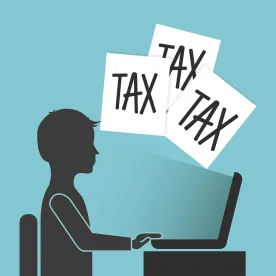Across the country a property valuation method known as the "Dark Store Theory" is being used by some large retailers to lower their property tax bills. Some large retailers with highly customized properties are seeking millions of dollars in tax savings through court challenges to property tax assessments using the Dark Store Theory. These challenges can have a dramatic impact on municipal budgets as local governments are forced to increase property taxes for other property owners to compensate for the lost revenue. As use of the Dark Store Theory continues to increase, legislative initiatives are coming to the forefront in an effort to stop its proliferation. Other potential remedies to the effects of the Dark Store Theory are also being considered by various municipal and tax payer organizations.
Origin of the Dark Store Theory
The Dark Store Theory originated from the belief that large, customized retail stores have been unfairly treated by prevailing property valuation methods for tax assessments. Property value assessment methods attempt to determine the fair market value of a property and are usually based upon the construction costs, lease terms or the most recent sale price of the property. This seems logical in most cases, in that the cost to build or purchase a property is typically a good measure of its fair market value. Dark Store Theory proponents argue that while these methods may provide an accurate estimate of the value of large retail properties to the current owner, fair market value should be based on the value of the property to a third party purchaser.
According to the Dark Store Theory, the traditional assessment methods are inaccurate because they do not account for the fact that large retail stores are often heavily customized and while such customizations increase the construction costs or lease terms, they have no resale value for third party use. Therefore, the property should be evaluated as if the store were "dark", without the current tenant, lease terms, or construction costs being taken into consideration. The argument goes that the sales of other large retail stores in the area are the best representations of the actual fair market value of the property, as they are the only examples of what a third party would pay for a property. The sales comparison approach can be used to determine what a third party may pay for the property by evaluating market conditions and the sales of similar existing properties in the area.
Dark Store Theory Effects
Use of the Dark Store Theory can lead to drastically reduced property tax assessments for a number of different reasons. Proponents of the theory argue that many of a property's customizations for large retail spaces are only useful to the current tenant and therefore do not increase the value of the property to a third party. This results in the assessment value of the property being inflated above what the property owner could actually receive in an open market transaction. This is not to say, however, that the sales comparison method perfectly reflects the fair market value of a different property. In fact, many sales of large, vacant, retail spaces are either sales made by a party in financial distress or of properties located in markets that could no longer support the existence of the large retail space. These factors lead to significantly reduced sales prices that artificially deflate property tax assessments when used as a comparison.
Legislation
Local governments strongly object to use of the Dark Store Theory as it decreases important tax revenue while increasing the tax burden of other property owners. There has been a strong push from local governments and many of their taxpaying constituents who have been negatively affected by the Dark Store Theory to pass legislation preventing this assessment method from being used. Similar legislative efforts have been successful in some states, but have stalled in others.
As the Dark Store Theory continues to spread throughout the country, expect legislation addressing the issue to be introduced and debated in many statehouses, along with separate initiatives from interested organizations.





 />i
/>i

